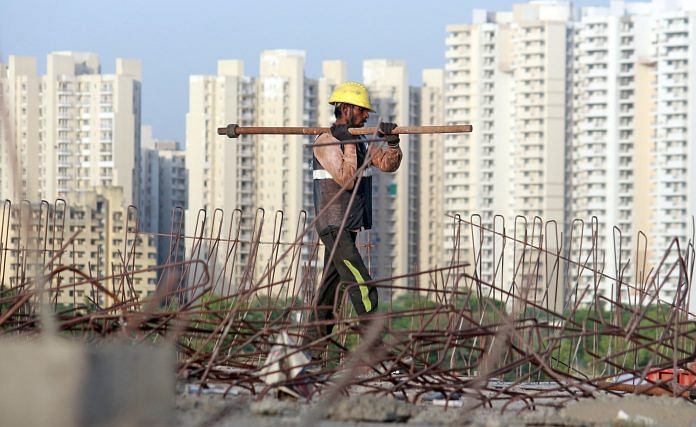New Delhi: Although the Modi government’s push to invest in infrastructure is encouraging more private sector investments, what’s needed for sustained growth in India is land, labour, and capital market reforms, World Bank has said.
“The growth of private sector investment is not something that can change overnight,” Dhruv Sharma, a senior economist at the World Bank, said at a press briefing held during the release of the ‘India Development Update’ report Tuesday.
Sharma was answering a question on why, with corporate balance sheets in much better health now, their profitability rising, and banks in a much better position to lend, private sector investment was not growing.
According to Sharma, a major factor at play is the confidence levels of the private sector, which the government is trying to address.
“The government has made quite a lot of progress when it comes to creating an enabling environment for private investment, but you still need a lot of confidence to invest, and you need confidence over a number of years which is what the government is trying to do with its sustained push on infrastructure investment in particular,” he said.
He also spoke about how this government investment in infrastructure was creating a “crowd in” effect, but that it would take time to manifest.
A “crowding in effect” refers to the phenomenon where high government investment leads to higher growth levels, and therefore encourages the private sector to also begin investing.
“Our estimates are that there is a crowding in effect when the government invests in infrastructure in particular,” Sharma said. “It takes a bit of time, but it does show up. In India, there is a very large critical infrastructure gap and if the government continues investing in this way, confidence will increase on the private investment side.”
Also Read: India’s FY24 growth to slow to 6.3%, says World Bank, cites US-Europe banking crisis among reasons
‘Deep reforms needed’
World Bank economists also pointed to other actions of the government that will crowd in private investments even at the state level.
“The government is also extending the possibility for states to borrow at zero interest from the central government for 50 years so they can also carry on investment at the state level,” Auguste Tano Kouame, World Bank’s Country Director for India, said at the press conference. “This will also crowd in private investment at the state level.”
But this, Kouame said, is insufficient to accelerate private sector investments — what’s needed, according to him, are “deep reforms” by the government.
“This will not solve the long-term issue of investment unless confidence grows,” he explained. “And confidence will grow, but to accelerate the growth of confidence, public investment is not enough. You need deeper reforms to make the private sector invest not just when it is hugely profitable for them, or not just when they have deep pockets.”
“You want the shallow-pocketed private sector to also invest and you want small firms to invest so they can grow,” he said. “There are a number of reforms that are needed for that.”
He pointed out that while access to land for business purposes is easy in some states, it is quite difficult in other states, and that reforms are needed to ease these processes. He also said that reforms are needed on the labour side, as well as in making it easy for firms to list and delist themselves from the stock exchanges.
Sharma added that the high-interest rate environment currently in play could also adversely impact the short-term investment decisions of the private sector, but not to a large extent.
“We are expecting some moderation in domestic demand this year and the bulk of that is coming from the consumption side,” Sharma said. “But to a certain extent, borrowing costs are high for both individuals as well as corporations. So there might be some reassessment by corporates regarding their investment decisions.”
However, he said that interest rates are not the only consideration for corporates when they decide to invest and that the World Bank doesn’t expect high-interest rates to be “a big drag on investment growth in this year or the next”.
(Edited by Uttara Ramaswamy)
Also Read: India innovates in labour. It doesn’t need the pressure to spend huge on R&D like US, Japan



